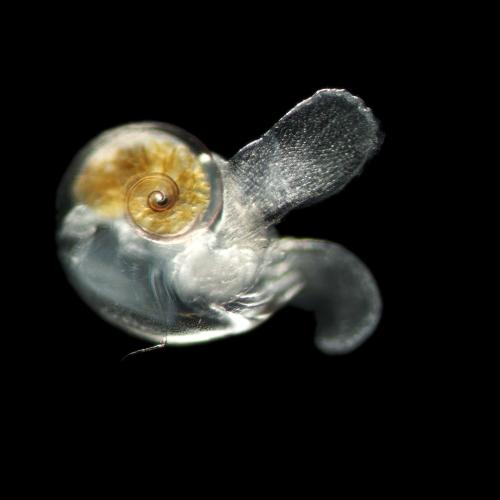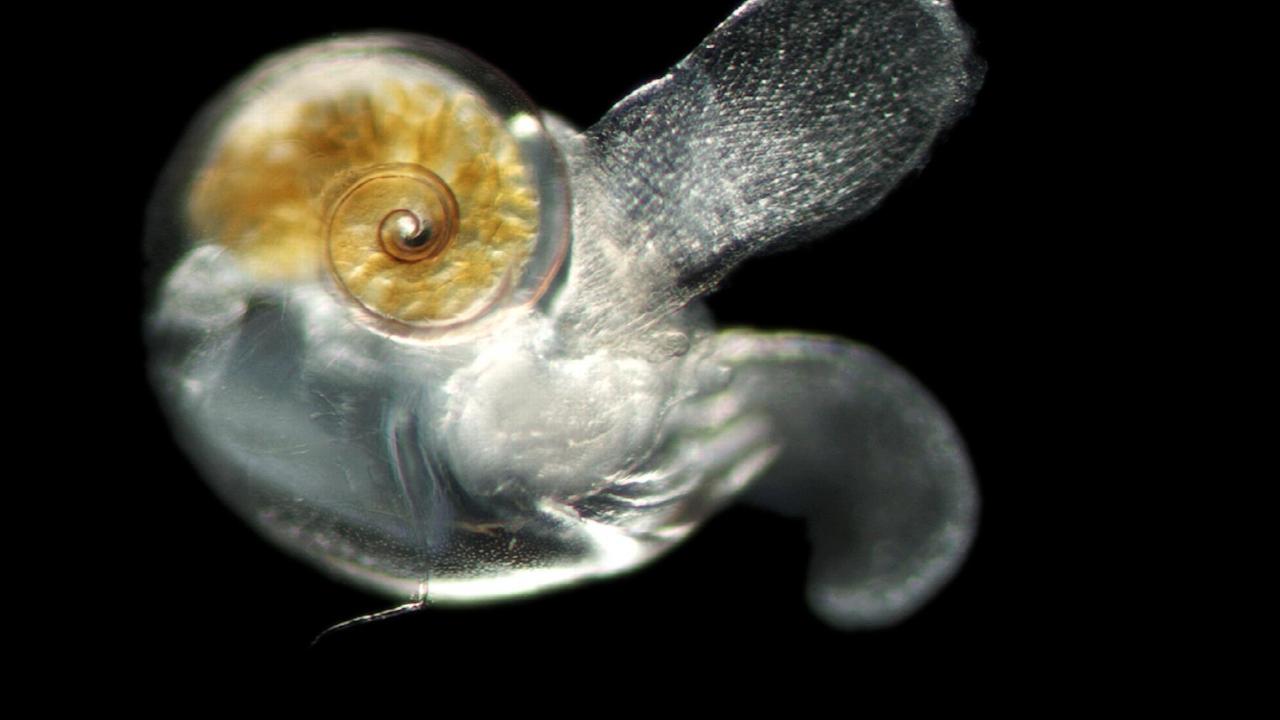
Planktonic gastropods have tremendous potential for the study of long-term marine evolutionary processes because they are the only living aminal plankton with a good fossil record. Although most marine gastropods are benthic, two large groups (referred to as 'pteropods' and 'heteropods') have a holoplanktonic lifestyle and represent independent colonizations of the open water column. Planktonic gastropods, and particularly pteropods, have received much attention as bio-indicators to monitor the negative impacts of ocean acidification (OA) on open ocean ecosystems.
Inshort
In this research, we aim to gain insight into 1) the evolutionary history and past responses to OA, 2) the genes involved in making shells (biomineralization), and 3) the spatial structuring of populations. Ultimately, we aim to provide answers to the question whether planktonic gastropods will be able to adapt to a rapidly changing ocean.
Projects:
- Vidi project- Katja Peijnenburg (2016-2021): Evolution of planktonic gastropods in an acidifying ocean (PLANKGAS).
- Phd project- Lisette Mekkes (2017-2021): Growth, calcification, and vulnerability to ocean acidification of shelled pteropods.
- PhD project- Le Qin Choo (2017-2021): Population genomics of coiled pteropods in an acidifying ocean.
- Marie Curie postdoc- Deborah Wall-Palmer (2017-2019): Atlantidae: Predators at the ocean surface and indicators of change (POSEIDON).
- Marie Curie postdoc- Paula Ramos-Silva (2019-2021): The evolution and future of planktonic gastropod calcification (EPIC).
